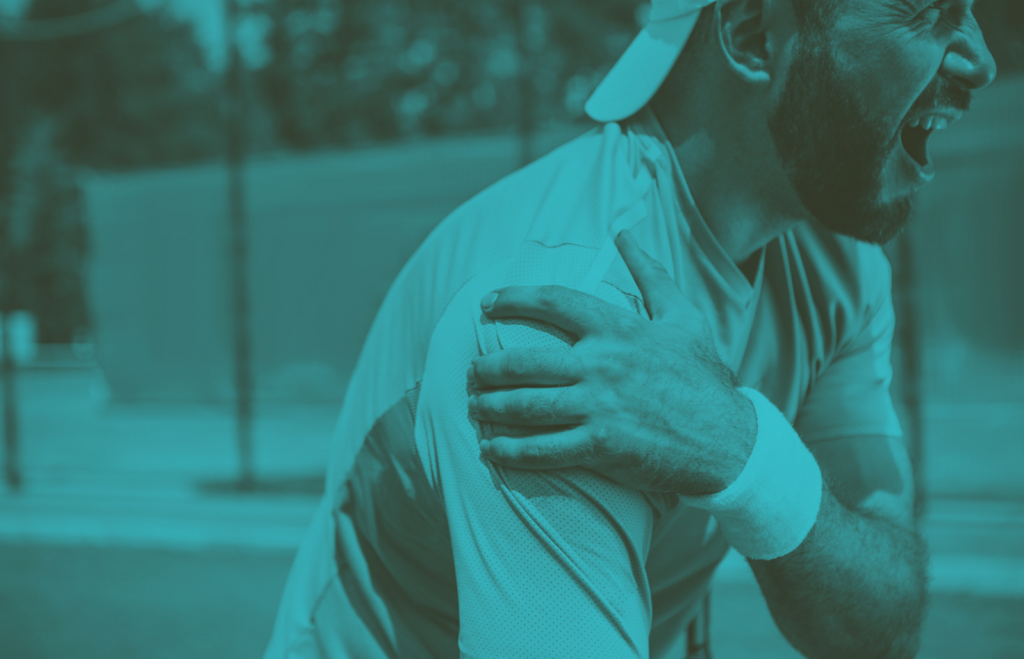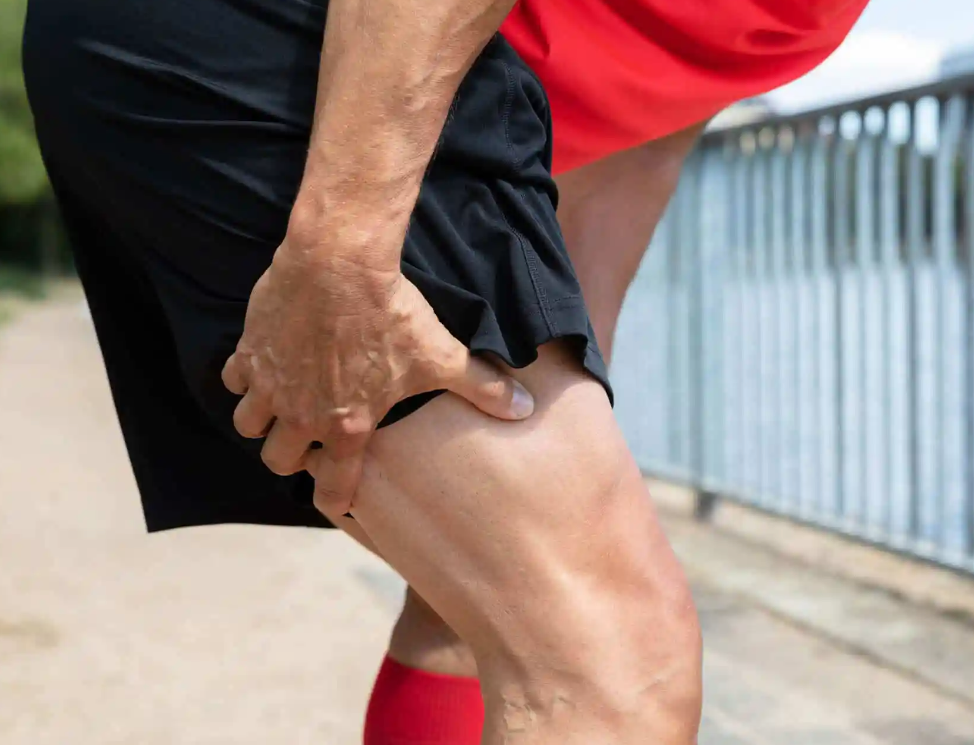Last Updated on November 20, 2025 by Drew Pierce

I often marvel that NFL players can take monster hits and get back to their feet unscathed. Meanwhile, I’ve pulled muscles getting out of bed, making a cup of coffee–even sneezing! But I digress. The point is that many articles surrounding pickleball being a dangerous sport are clickbait. Or worse yet, these awful articles are designed to undermine the sport’s growth. If you’re living and breathing, you are prone to injury. And there will always be freak accidents. But that said, people who play pickleball are prone to specific injuries. Here are the eight most common pickleball injuries.
Pickleball Shoulder Injury
Due to the repetitive nature of backhands, forehands, and serves, many pickleballers experience shoulder pain or injury over time. It’s important to warm up before playing and practice proper technique in order to prevent long-term damage.

Pickleball Elbow Injury
Also known as tennis elbow, this is a common injury experienced by pickleball players. It is caused by overuse of the elbow muscles, usually due to improper form when striking the ball. Ironically, tennis players who have recently picked up pickleball tend to be the most prone since they play with full arm extension. Over time they learn that pickleball is a much “quieter” sport involving fewer moving parts.
Pickleball Wrist Injury
Like shoulder and elbow injuries, wrist pain or discomfort is often caused by poor technique or lack of warm-up before playing. Many pickleball beginners also need to avoid holding the paddle too tightly. Most shots require a looser grip, making for more accurate placement and less stress on hand ligaments.
Pickleball Knee Injury
Like any sport, knee injuries are common. Most often, they are caused when jumping or lunging for the ball. Also, since so much pickleball is played at the non-volley zone, where players are encouraged to stay low in a ready position, the knees take an active role throughout the match.

Pickleball Ankle Injury
Many pickleball players experience ankle pain or discomfort due to the quick stops and turns required in the game. However, wearing the proper footwear can easily avoid many pickleball-related ankle injuries. If I had a dollar for every time someone showed up to the courts in running shoes; I’d be a rich man. Pickleball sneakers (virtually the same as tennis shoes) provide superior ankle support and are a must-have for all players.
Pickleball Back Injury
This can be caused by poor posture, not bending your knees when serving, or over-extending on a shot. I migrated to pickleball from tennis because of chronic lower back issues. However, I quickly learned that while pickleball is easier on my body overall, it’s not any better for my lower back–in fact, it might be worse! But that doesn’t stop me! 🙂
Pickleball Foot Injury
Plantar fasciitis is one of the most common foot injuries experienced by pickleball players due to the repetitive motion of pivoting or running. Wearing proper shoes and stretching before playing can help prevent this injury. Also, be sure you’re wearing good socks and properly-fitting shoes, as I have seen quite a few people suffer from nagging toe injuries such as ingrown nails when playing pickleball with great frequency.

Pickleball Eye injury
If I get caught in the transition zone and an opposing player is set up for an overhead smash, I will sometimes turn my back. Last week, my opponent barked at me, “It’s only a wiffleball.” Maybe. But as someone who has been hit a few times, I can assure you it is still not fun, irrespective of what the ball is made out of. And I’ll take a strike in the butt over a front shot any day of the week! With a potential of a 40mph strike from less than 14 feet away, pickleball glasses are highly recommended.
6 Additional Pickleball Injuries
Hip injury: Quick side-to-side movements and sudden changes in direction can lead to hip strain or injury, especially if a player has weak hip muscles or poor flexibility. Proper warm-up, stretching, and strengthening exercises can help prevent hip injuries.
Achilles tendon injury: The Achilles tendon can become inflamed or injured due to overuse, tight calf muscles, or improper footwear. Achilles tendonitis can be prevented by wearing appropriate shoes, warming up, and incorporating calf stretches into your routine.
Hamstring and quadriceps strains: These muscle strains can occur due to sudden acceleration, deceleration, or overstretching during play. To minimize the risk of muscle strains, players should warm up properly, stretch regularly, and engage in strength training exercises to support these muscle groups.

Groin strain: Sudden changes in direction or quick lateral movements can lead to groin strain. Strengthening the hip adductor muscles and maintaining flexibility can help prevent groin strains in pickleball players.
Dehydration and heat-related illnesses: Pickleball is often played outdoors in warm weather, which increases the risk of dehydration and heat-related illnesses like heat exhaustion or heat stroke. Staying properly hydrated, taking breaks in the shade, and wearing sunscreen can help protect against these risks.
Concussions: While less common in pickleball compared to contact sports, concussions can occur if a player falls and hits their head or gets struck by the ball at high speeds. Wearing protective eyewear and practicing good court awareness can help minimize the risk of head injuries.
Remember that proper warm-ups, stretches, and techniques are crucial in preventing injuries. Consulting with a healthcare professional for advice and treatment is always recommended if you experience any pain or discomfort.
Although pickleball is not a dangerous sport, it’s important that players understand how to prevent common injuries associated with the game. Proper warm-ups, stretches, and technique can go a long way in avoiding injury. As always, if you are experiencing pain or discomfort, consult with your healthcare professional for advice and treatment.
Happy (and safe!) Pickleballing!

8 thoughts on “14 Most Common Pickleball Injuries”